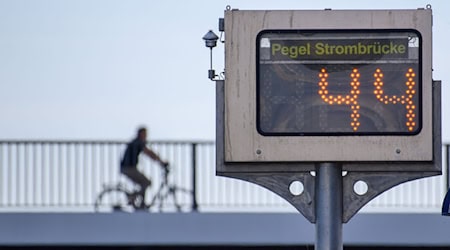The Greens in the Saxon state parliament are demanding clarity from the government regarding its stance on the new Interstate Broadcasting Treaty. "I demand a clear statement from the state government as to whether it will allow the state treaty to fail in Saxony before it can even be discussed in the state parliament," explained media expert Claudia Maicher. The time window for a referral is closing and the Free State is continuing to leave the nationwide public and all state parliaments in the dark: "This is not acceptable."
Maicher accused Minister President Michael Kretschmer (CDU) of refusing to sign the draft of the Interstate Broadcasting Treaty agreed with all state heads of government. That is why she has now submitted a minor question on the matter. "This whole tactic is irresponsible." Kretschmer is imitating the Minister Presidents of Bavaria and Saxony-Anhalt - Markus Söder (CSU) and Reiner Haseloff (CDU) - "in order to be at the forefront of the club of contribution populists."
Maicher: CDU is obviously not just concerned with the amount of the contribution
"In order to be able to play up against any contribution increase for as long as possible, he is stirring up the very escalation that the new objection model is supposed to prevent. Or is he just accepting the damage to trust in public broadcasting in order to save himself an embarrassment if his own CDU parliamentary group rejects the state treaty in the state parliament?" asked Maicher. After all, the media policy spokesperson for the CDU parliamentary group, Andreas Nowak, had hinted at this.
In Maicher's opinion, the Saxon CDU is obviously not only concerned with the level of contributions. "There are also political motives behind the permanent undermining of orderly procedures and applicable law. This is highly problematic under constitutional law. Program complaints due to alleged "political imbalance" and "attitude journalism" belong in the non-governmental supervisory bodies and must not be mixed up with financing."
Reforms would only succeed with financial planning security
"The blockade attitude of Saxony, Bavaria and Saxony-Anhalt now threatens to blow up the agreed overall package of state treaties for structural reform and financing model," feared Maicher. However, reforms would only succeed if there was financial planning security. "But this is still being torpedoed. This is a bad sign at a time when we need a strong and sustainable public broadcaster to stabilize democracy."
The so-called Broadcasting Financing Amendment Treaty is intended to prevent individual federal states from being able to single-handedly block the adjustment of the broadcasting contribution from 2027 by means of the so-called contradiction model. With this model, the approval of all 16 state parliaments will no longer be necessary in future. The draft would have to be approved by all state parliaments by November 2025, otherwise it will expire and cannot come into force.
Copyright 2025, dpa (www.dpa.de). All rights reserved










